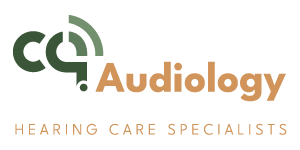Contact Us
We would love to speak with you.
Feel free to reach out using the below details.
Visit our main clinic
- T33 & 34A, City Centre Plaza, 24 Fitzroy Street, Rockhampton, QLD 4700
Get In Touch
- Phone: (07) 4848 6528
- Email: reception@cqaudiology.com.au
Trading Hours
- Mon-Fri 9:00AM - 5:00PM
- Sat 9:00AM - 12:00PM
Get a callback
Fill out the form below and we will contact you as soon as possible!
CQ Audiology Visiting Sites
BARCALDINE
Barcaldine 60 & Better Program
13 Willow Street
QLD 4725
BILOELA
Ace Medical Centre
48 Grevillea Street
QLD 4715
BLACKALL
Blackall Hospital
189 Landsborough Highway
QLD 4472
BLACKWATER
North Blackwater General Practice
14 Blain Street
QLD 4717
EMERALD
Lot 1 Pilot Farm Road
QLD 4720
MOUNT MORGAN
41 Morgan Strreet
QLD 4714
ROCKHAMPON CITY
T 33 & 34A City Centre Plaza
24 Fitzroy Street
QLD 4700
TAMBO
Tambo Multi Purpose Centre
26 Arthur Street, Tambo Queensland 4478
LONGREACH
North & West Queensland Primary Health Sercvies
19 Duck Street, Longreach Queensland 4730
YEPPOON
Keppel Bay Medical Centre
Shopt 26, Keppel Bay Plaza
64-67 James Street
QLD 4703

Experience Unmatched Clarity with Hearing Test Mount Archer - Rockhampton
Why Do I Need a Hearing Test?
Are you looking for a hearing test Mount Archer – Rockhampton QLD? You might wonder why you need a hearing test if you haven’t noticed any significant issues with your ability to hear. However, hearing loss often develops so gradually that you might not recognise the signs until they’ve significantly impacted your daily interactions and quality of life. Regular hearing assessments are crucial, not just for detecting hearing loss, but for ensuring that any changes in your hearing health are managed promptly and effectively. Consider how subtle changes in your hearing could be influencing your social interactions, job performance, and even your safety. Isn’t it worth investigating what you might be missing?
Importance of Regular Hearing Tests
Regular hearing tests are essential because hearing loss often develops gradually, making early detection key to managing the condition effectively. If you’re over 60, it’s recommended you get your hearing checked annually. This routine helps monitor and maintain your hearing health as you age. For younger adults, aiming for a test every 3-5 years is advisable to keep track of any changes that might occur.
Early testing in children is crucial as well. It supports proper language development and academic success, ensuring that any issues are addressed before they impact critical growth stages. Don’t overlook these tests; they’re a fundamental part of your overall health regimen.
Signs You Might Need a Hearing Test Mount Archer
If you often struggle to follow conversations in noisy places, it might be time for a hearing test. This difficulty is a common sign that your hearing isn’t as sharp as it used to be. Moreover, if you find yourself frequently asking people to repeat themselves, it could indicate a decrease in your hearing ability. Don’t overlook these signs; they’re key indicators that you need to check your hearing health.
Another warning sign is experiencing ringing or buzzing in your ears, known as tinnitus. Although tinnitus can be temporary, if it persists, it’s crucial to get your ears checked. This symptom can be bothersome and might be pointing to underlying issues that a hearing test can help identify.
Feeling isolated or disconnected during social interactions is another red flag. If you’re having trouble understanding what others are saying, or if speech sounds muffled, these are strong indications that your ears may not be performing optimally.
Lastly, if you’re concerned about your child’s speech and language development, don’t hesitate. Early detection and intervention can be vital for addressing potential hearing problems in children.
Understanding Different Hearing Tests
To properly assess your hearing health, it’s crucial to understand the different types of hearing tests available. These tests help audiologists determine the type and severity of hearing loss, guiding the best treatment options.
One common method is pure tone audiometry, which measures how well you can hear sounds at different pitches and volumes. It’s typically used for adults and older children. During the test, you’ll wear headphones and indicate when you hear sounds in a quiet environment.
Another is speech discrimination tests. These evaluate your ability to understand speech in both quiet and noisy settings. It’s vital for understanding how your hearing loss affects communication.
Objective tests like otoacoustic emission testing and tympanometry provide deeper insights without your active participation. Otoacoustic emission testing checks the response of your inner ear to sound, while tympanometry assesses the condition of your middle ear by measuring eardrum movement and ear pressure.
Each type of test offers unique and important information about your hearing, allowing for a tailored approach to managing any hearing issues you might face. It’s essential to undergo these tests if you suspect any hearing difficulties to ensure you receive appropriate care and support.
Hearing Tests for Different Age Groups
Hearing tests vary by age group, ensuring each test is tailored to effectively evaluate and address the specific auditory needs of infants, children, and adults. As an adult, you’re likely to undergo pure tone audiometry, which assesses your hearing by measuring how well you hear a range of tones. This test checks both air and bone conduction, helping to pinpoint the type and severity of hearing loss you might be experiencing.
For older children, similar tests are used. They can follow instructions and respond to the tones they hear, which allows for accurate assessments of their hearing capabilities. This is crucial as it helps in catching any hearing impairments early, potentially saving them from difficulties in speech and learning development.
Infants and younger children, however, can’t communicate like adults or older kids, so their tests are different. They might undergo tympanometry to check the function of the middle ear, or more specialised tests that measure the auditory nerve’s response to sounds. These tests are designed to pick up any abnormalities in the inner ear and nerve pathways without needing active responses from the babies.
It’s essential to have these tailored hearing tests at different stages of life to ensure any issues are caught and managed early.
What Happens During a Hearing Test?
When you undergo a hearing test, an audiologist will assess how well you can hear various sounds. You’ll be exposed to different frequencies and volumes, usually through headphones, to determine your hearing threshold for each ear. This process helps pinpoint the softest sounds you can detect, vital for diagnosing the type and severity of hearing loss you may have.
The audiologist might also conduct speech tests to see how well you can understand words at different volumes, which is crucial for daily communication. These tests evaluate your ability to recognise speech against varying levels of background noise, reflecting real-world conditions.
Additionally, you may experience a tympanometry, which involves placing a small probe in your ear to measure how your eardrum responds to slight changes in air pressure. This can help detect issues with the middle ear that might be affecting your hearing ability.
Throughout the test, the audiologist will meticulously record your responses, creating a detailed audiogram. This graph visually represents your hearing capabilities across different frequencies and intensities. Based on these results, the audiologist will discuss with you the findings and suggest next steps for maintaining or improving your hearing health.
Managing and Treating Hearing Loss
Once your hearing loss is identified, exploring treatment options tailored to your specific needs becomes essential. Depending on the type and severity of your hearing loss, which your hearing test results will reveal, the treatment approach can vary significantly.
If you’ve caught your hearing issues early, thanks to regular hearing tests, you might find that less invasive methods can effectively manage your situation. This could include using hearing aids, which are now highly sophisticated devices designed to fit almost invisibly and enhance hearing without being noticeable to others. You might also benefit from assistive listening devices for specific situations like watching TV or participating in conversations in noisy environments.
For more severe cases, other interventions such as cochlear implants might be recommended. These devices are more complex and are usually considered when hearing aids aren’t sufficient. Additionally, therapy and training to improve listening skills and communication strategies are often part of a comprehensive treatment plan.
Why Choose CQ Audiology for hearing test?
Choosing CQ Audiology for your hearing test ensures you benefit from the latest technology and expert care. With state-of-the-art equipment, your hearing test results are precise, helping to identify even subtle hearing issues. You’re not just getting a standard check-up; you’re experiencing top-tier accuracy that can make all the difference in your treatment.
The audiologists at CQ Audiology aren’t just experienced; they’re dedicated to providing you with clear, understandable feedback and recommendations. They take the time to explain your results and the next steps, ensuring you’re fully informed and comfortable with your hearing health decisions.
Moreover, CQ Audiology understands that your time is valuable. That’s why they offer flexible scheduling and a convenient location to ease the process of getting your hearing tested. You won’t have to rearrange your life to fit in an appointment; they work around your schedule, making it as hassle-free as possible.
Lastly, the personalised care at CQ Audiology sets them apart. They tailor their services to meet your specific hearing needs, ensuring that you’re not just another number. From the moment you walk in, your comfort and satisfaction are their top priorities, guaranteeing a positive and productive visit.
Conclusion
Regular hearing tests are crucial for catching early signs of hearing loss and ensuring your communication remains sharp. Whether you’re noticing difficulty in understanding conversations or just aiming for proactive health management, these tests can make a big difference.
At CQ Audiology, we tailor our approach to your specific needs, helping maintain or improve your hearing health. Don’t overlook the importance of your auditory well-being—schedule your hearing test with us today and stay connected to the sounds of your life.
DISCLAIMER: The content on our site is intended for educational purposes only and should not be interpreted as an endorsement or recommendation of any treatments or products without a comprehensive hearing assessment. Users should seek professional advice and fully understand any potential side effects or risks before starting any treatment. Products mentioned on our site are not available for purchase by the public without prior consultation with a hearing health expert.
